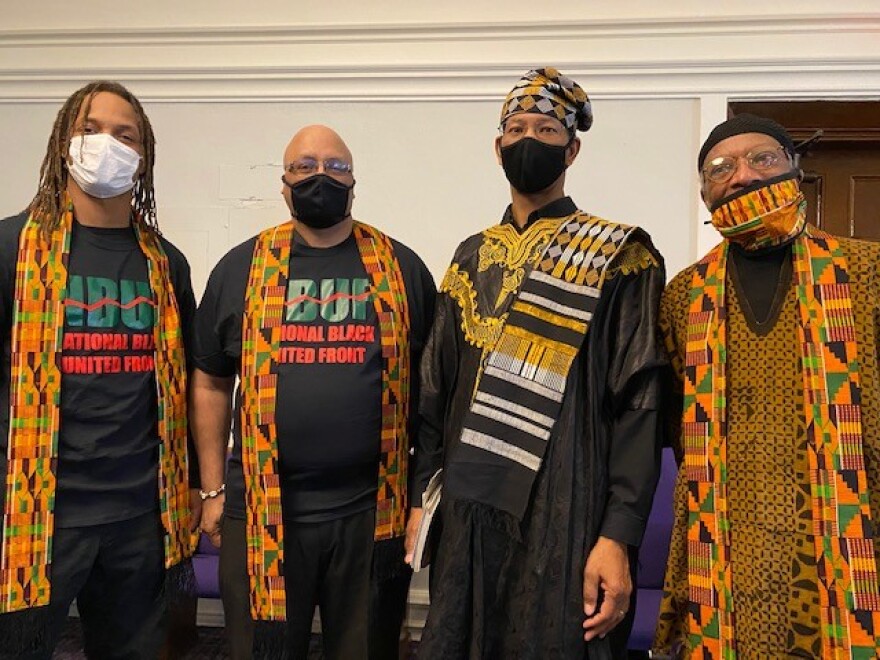In a thin crowd, socially distanced to observe COVID-19 precautions, those who knew and worked with Alvin Sykes spoke passionately of his legacy as a lifelong warrior for justice and civil rights. Sykes passed away on March 19. He was 64.
In the practice that has become routine for funerals during the coronavirus pandemic, the service at Metropolitan Missionary Baptist Church, located at 2310 Linwood Blvd., was also live streamed on Facebook.
Comments from the pulpit were annotated by a steady stream of Facebook comments from those near and far who were unable to attend in person.
From the Emmett Till Legacy Foundation based in Minneapolis, there was a statement that read, “We are forever grateful for (Sykes’) dedication and determination in his many acts of seeking truth, justice and accountability for the Family of Emmet Till.”
Sykes became nationally known for his work on the case of Emmett Till, who was 14 years old when he was murdered in Mississippi. Sykes later became the architect of the Emmett Till Unsolved Civil Rights Crime Act that authorizes federal law enforcement to reopen unsolved Civil Rights homicides.
Herbie Hancock, the internationally renowned jazz pianist who schooled Sykes in the practice of Buddhism, recognized Sykes’ commitment to Soka Gakkai International (SGI) , a Buddhist organization.
Dr. Kevin Moncrief, of SGI-US, shared a virtual tribute that framed Sykes work in a Buddhist context.
“Birth and death are the constant manifestations of eternal life, continuing through past, present and future,” he said. “Mr. Alvin Sykes devoted his entire life to the cause of justice for all. Our best way to honor him is to continue his work.”

Talib Muwwakkil, Chairperson of the National Black United Front – KC Chapter, an organization Sykes helped found over 40 years ago, praised his commitment to the Black community. He praised Sykes’ mentorship and guidance for young people and spoke of Sykes’ ascetic life, working mostly for donations as a “good steward” of what little he possessed.
“He was a quiet man, but when he spoke his words were wise and mighty.”
Kansas Senator David Haley, a close friend who moderated the service, read some of the many written tributes to Sykes.
They included messages from Kansas City, Missouri, Mayor Quinton Lucas and the City Council, the Kansas City, Kansas, Board of Commissioners, including a personal condolence from Commissioner Gayle Townsend.
Sykes “bent the arc of moral justice for generations," Townsend said.
Missouri Congressman Emanuel Cleaver sent word he would read a proclamation in Sykes’ honor on the floor of the U.S. House of Representatives.
In concluding the service, Haley said the best way to honor Sykes’ legacy is to mirror his behavior.
“I hope each of us will continue to remain encouraged by his example,” Haley said, “not to complain about what we don’t have to work with to make a difference, but to continue to write our own legacy.”




